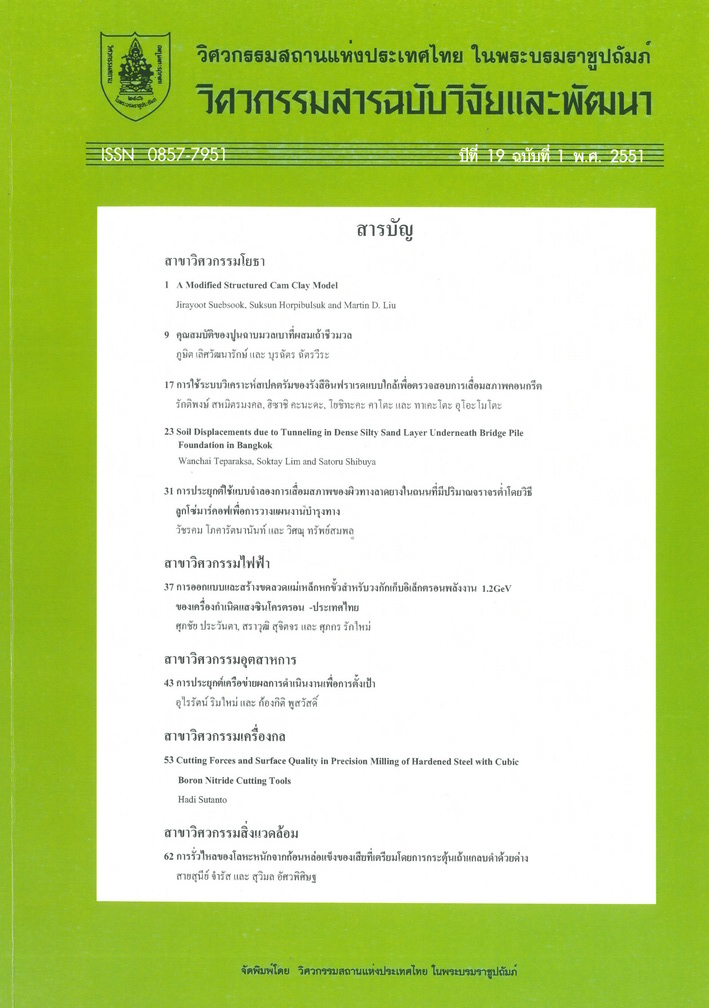คุณสมบัติของปูนฉาบมวลเบาที่ผสมเถ้าชีวมวล
Main Article Content
Abstract
The aim of this research is to investigate the use of biomass ash for developing plastering cement with the better heat-insulation properties, suitable for general usage. This research studied the factors affecting the properties of plastering mortar in accordance with Thailand Industrial Standard (TIS1776-2542) and its heat- insulation property, compared with an ordinary Portland cement (OPC) mortar. The parametric study was performed by replacing sand and cement with unground and ground biomass ash respectively at the levels of 5%, 10%, 15% and 20% by weight. The results revealed that increasing proportion of unground and ground biomass ash caused a decrease in compressive strengths of plastering mortar, but their compressive strengths were still higher than that of TIS standard. Using biomass in the mortar mixtures provided better heat-protection capability. From the results, the mixture containing 20% of unground biomass ash yielded the lowest thermal conductivity of 1.06 W/mK, which was 37% better than OPC mortar. The results suggested that unground biomass ash can be used to partially replace fine aggregate with an acceptable TIS standard as well as heat-insulation capability.
Article Details
The published articles are copyright of the Engineering Journal of Research and Development, The Engineering Institute of Thailand Under H.M. The King's Patronage (EIT).


